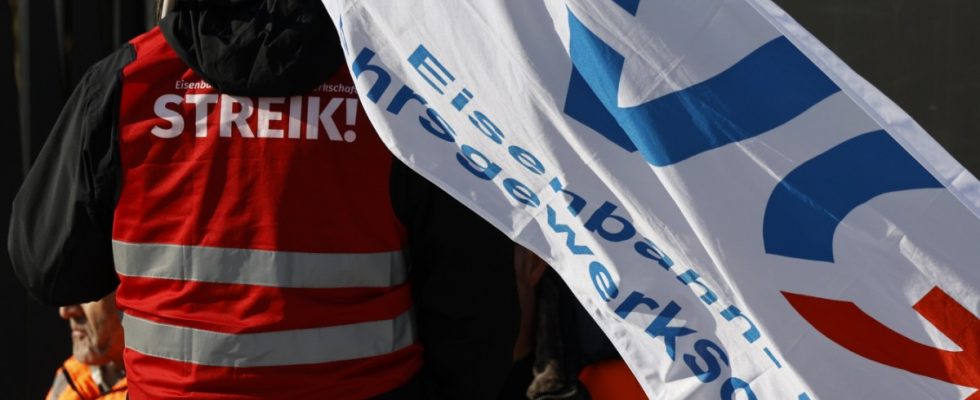Most people associate bargaining rounds – if they associate anything with them at all – with rumbling performances. Verbal attacks between trade unionists and employers, warning strikes, whistles. However, the willing observer spends most of his time during collective bargaining differently: waiting. You sit in front of closed doors, staring at mobile phone screens on which nothing is happening. Until then, at some point, it will be announced how things will continue.
In this respect, Friday was a typical bargaining round day, at least until the early evening. Bahn and EVG, who have been struggling for higher salaries for employees for four months now, had signaled that they finally wanted to come to an agreement. The whole week was negotiated, a full five days, that should bring the breakthrough. A breakthrough that not only many employees who are hoping for more money are urgently awaiting. But also the millions of rail customers who could well do without the next warning (or possibly even real) strike.
So on Friday, at least until the editorial deadline for this issue, nothing happened. No press conference was scheduled, no announcement sent, nothing popped up on the screens. Apart from dry reassurances from the negotiating circles: it will take a while. The most likely explanation for the loud silence is this: an agreement was in the air, detail after detail was struggled for – but in the end everything could still burst. More money for everyone, the next warning strike, even a ballot, all of this was considered possible. In this respect, this Friday was symbolic of the course of the collective bargaining round so far, which has so far been characterized above all by the fact that it seems extremely lengthy and complicated.
The demand: twelve percent more wages
Bahn and EVG have been negotiating since February 28, and the union’s expectations are particularly high this year. Not only that she presented the management with a catalog of more than 50 demands. She also demanded a salary increase of twelve percent or a minimum monthly amount of 650 euros more for the approximately 180,000 railway employees, for example train drivers and conductors, dispatchers and maintenance workers. At the same time, the EVG is in negotiations with other train companies, where around 50,000 more employees are involved.
The EVG argues that the strong salary increases are necessary to compensate for the high inflation. She also refers to her reluctance during the corona pandemic: When the trains remained empty during this time and the railway made enormous losses, the trade unionists agreed to a comparatively low contract for reasons of economic reason.
Bahn HR director Martin Seiler, who conducts collective bargaining for the group, is promising the union this time fundamentally strong wage increases. According to Seiler, however, they must not be quite as strong as the EVG wants them to be: Then the railway would no longer be competitive, he argued, it would lose tenders to other companies with lower salaries.
For months, almost nothing moved in the conflict, the two sides argued bitterly about details, such as the working conditions of around 2,000 to 3,000 minimum wage earners at Deutsche Bahn. The tone became increasingly rough. Seiler, for example, compared the union’s negotiating team to a school class. The EVG, in turn, did not shy away from violent warning strikes. At the end of March, together with Verdi, she paralyzed train and bus services almost everywhere in Germany, and in April the staff went on strike again for several hours. A third warning strike, which would have lasted two days and two hours, was averted only at the last minute with the help of a court settlement. Bahn and EVG undertook to continue to negotiate constructively.
Since then, both sides seemed to be working harder than before to find a solution. Despite several talks, some of which were confidential, and an intensive round of negotiations this week, according to reports, little has happened recently on the major issues of the collective bargaining round. The biggest sticking point was the EVG’s demand to agree on a minimum monthly amount by which salaries should rise. Low earners benefit more from this than from a percentage wage increase.
There was also a dispute about the term of the collective agreement. The railway had recently requested that it should be two years. The EVG, on the other hand, only wanted to conclude the contract for twelve months so that it could then quickly negotiate further salary increases again. Regardless of when the agreement finally comes, the industrial peace at the railways will probably not last long. The second railway union, the GDL, recently presented its equally juicy demands – and could enter the labor dispute in November.

